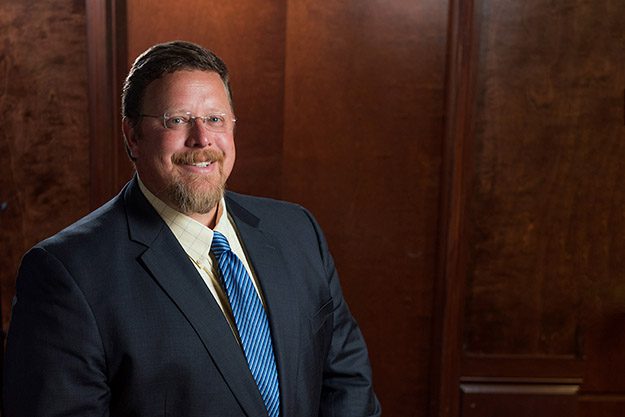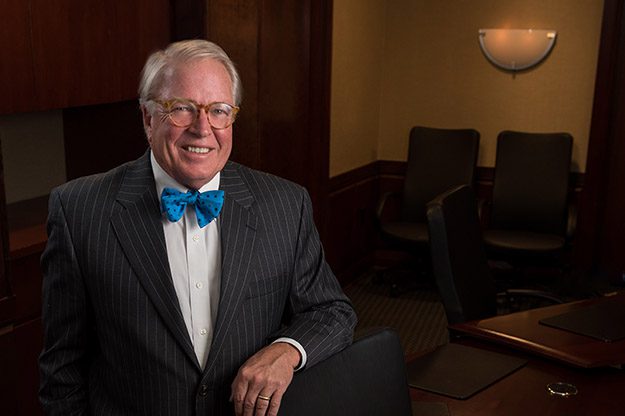Article
Resources
Article
There's No "Free Choice" in Employee Free Choice Act
The following opinion editorial - "There's No 'Free Choice' in Employee Free Choice Act" - written by Charles L. Woody and Kevin L. Carr, members of the firm, appeared in the Charleston Gazette, November 25, 2008.
Regarding Dr. John David's commentary, "Make it Easier to Unionize Workplace": Labor unions certainly have their place in a contemporary American economy, but not at the expense of employee free choice and economic security. Indeed, the Employee Free Choice Act would severely erode the freedom enjoyed by employees for nearly 75 years to make a private, fully-informed decision about whether or not they want a union to represent them.
Too often, the losing party in a union election - the company or the union - blames its loss on the opposing party's "coercive and underhanded" tactics. In reality though, the party that loses the election is most often the party that should lose it.
At the peak of the labor movement (circa 1945), nearly 36 percent of America's workers were unionized. Over the years, that ratio in the private sector has dwindled to less than 9 percent.
Examine what has happened since the 1940s in the workplace. Many of the ills first addressed by unions have been tackled (albeit not yet completely) by a myriad of state and federal employment and workplace-safety laws. As importantly, enlightened employers have critically examined their treatment of employees and have made tremendous strides toward becoming "employers of choice." Put another way, many employers have taken a cold, hard look in the proverbial mirror and have made significant, meaningful enhancements to the work environment.
Fast forward from the mid-'40s to the present. Organized labor is presented with an opportunity to examine its visage in the mirror. Once-novel phrases like "global economy" and "the world is flat" have become so obvious as to become clichés. Traditional heavy-industry mentality has given way to a new economy, one where innovation and agility are prized - some would say absolutely, positively necessary.
One need look no further than Motor City or up to the skies to find poignant examples of industries in dire need of a new model. The crossroads at hand is to either (1) reexamine, redefine and/or reinvent the value that organized labor can bring to the table, or (2) cling to the skull-cracking, adversarial, smoky-room negotiation paradigm of the past. Labor's sponsorship of the EFCA sends a strong message that unions prefer the far easier latter to the former. This is not looking in the mirror, it is looking out the window.
The EFCA effectively does away with one of the most fundamental tenets of the American notion of democracy: the right to make critical decisions by casting a ballot with no one else in the booth. Most Americans would agree that it is far better, far easier and fundamentally fair to "vote your mind" after hearing both sides, then casting your vote in private. The alternative - signing a card in your living room chair, or sitting across from two vocal co-workers and two paid union organizers - is not conducive to making a free choice. There is nothing "free" about this kind of "choice," and nothing remotely consistent with American notions of democracy.
Dr. David looks to Canada as a model for the EFCA. He's right - except the Canadian law has been a time-tested failure. A majority of Canadian provinces have returned to secret ballots over the past two decades. More than half of the remaining provinces that presently cling to card check require a supermajority. The few provinces that maintain a system like that proposed in the EFCA account for two-thirds of Canada's work stoppages.
We respectfully disagree with Dr. David's characterization of the EFCA as a "modest step" forward, but see it instead as a tumultuous tumble downward. There is an opportunity today for labor to examine its role in America's path forward. There is an opportunity for business to cooperate with labor to create a boat with all passengers rowing in the same direction. There is an opportunity for government to foster this new approach (a la West Virginia's Vision Shared).
Taking away an individual's right to a private ballot? It is hard to imagine how the EFCA could be any more un-American and any farther from the appropriate direction for our collective future.



